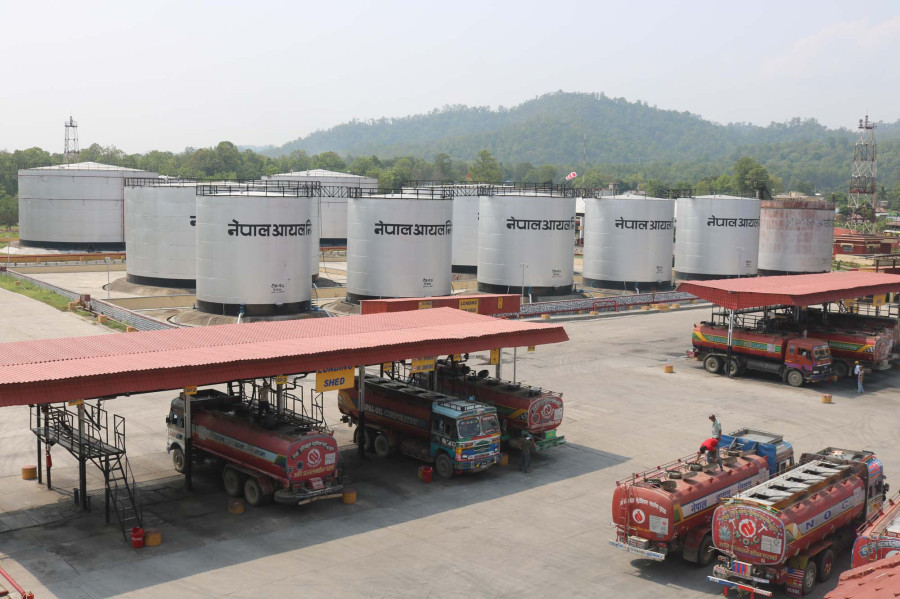Editorial
Oil price anomalies
The only alternative to auto-pricing of imported fuel is a better auto-pricing mechanism.
Intense politicisation has put Nepal’s vital systems out of sync. On Saturday, the Nepal Oil Corporation (NOC), the state-owned oil monopoly, jacked up petrol and diesel prices by Rs2 to Rs6 per litre respectively in response to a new price list from its sole supplier, the Indian Oil Corporation, through the auto-pricing rule. Furthermore, the price of a 14.2-litre cooking liquid petroleum gas cylinder rose by Rs215 per cylinder, to reach Rs2,110. However, following widespread criticism, the corporation withdrew its decision on Sunday at Prime Minister Pushpa Kamal Dahal’s direction.
Unfortunately, this arbitrary, unilateral decision from the country’s premier, made without consulting concerned ministries and ministers, in turn, is no more than a populist move. It also jeopardises the auto-pricing mechanism, which was revived by law only this July after a nine-year hiatus to adjust local prices based on global price changes. While our politicians, lawmakers and bureaucrats are notorious for breaking laws and policies, Dahal this time tried to appease public sentiment at a time when inflation has been costing Nepalis an arm and a leg, especially with increases in food prices and transport fares ahead of the impending festive season. Addressing the Parliament on Sunday, Dahal stated that the auto-pricing mechanism was “against consumer sentiments and sufferings” and goes against public choice.
According to consumer rights advocates, the automatic price mechanism is not carried out fairly and is rife with loopholes. The mechanism currently only applies to petrol, diesel, liquid petroleum gas and kerosene and excludes jet fuel. Neither the corporation nor the government has a credible explanation for why aviation fuel was left out. The corporation should have adhered to the law as a government-owned body, but intense politicisation of oil pricing has again come in the way.
Market mechanisms do not determine oil prices in Nepal. Given many anomalies in the country on oil and petroleum products, ending NOC’s oil monopoly would be to everyone’s interest, as many have long argued. This would pave the way for a fair and competitive environment in this sector, ultimately giving consumers some choice on how much they pay for their fuel. The government should consider developing necessary policies and legal framework for an open market, including the entry of the private sector in import and distribution, while also closely monitoring the whole mechanism for loopholes. Similarly, reforms in the auto pricing mechanism are needed, as is transparency regarding why aviation fuel is excluded.
Furthermore, the government should invest in and make provisions for sustainable practices, such as use of more electric vehicles, in order to reduce the country’s reliance on petrol and diesel. Electric vehicles got all the attention at the NADA Auto Show last month, occupying 60 percent of the stalls, and many visitors preferred electric two-wheelers. This public interest in e-vehicles can be further boosted through better targeted subsidies and greater awareness of the benefits of clean fuel. Not that authorities aren’t trying to phase out petrol vehicles, but the oil lobby in Nepal is so powerful, it invariably stymies any such efforts.
Politicians should stop meddling in petroleum prices and instead focus on opening the market to new players and better monitoring inefficiency and corruption within the NOC. Only then can Nepal do away with the malpractices and mismanagement in oil pricing. The auto-pricing mechanism provided a system to a country with unmanaged oil prices. The only alternative to auto-pricing is a better auto-pricing mechanism, not open state meddling in the oil market.




 9.7°C Kathmandu
9.7°C Kathmandu














